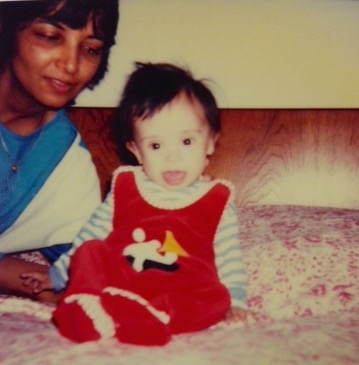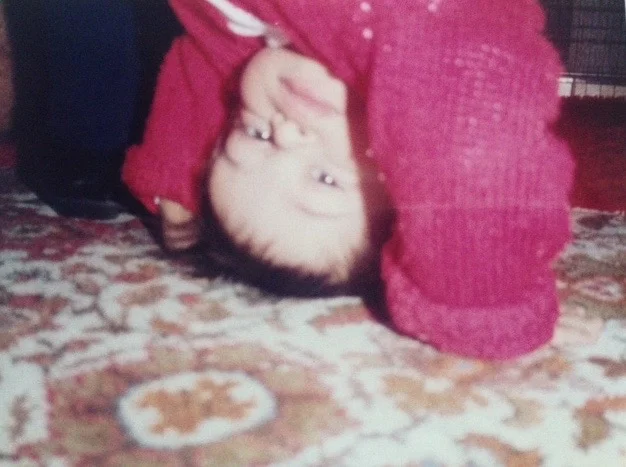Christopher
This is a segment of a blog written in 2015, while I was working in Musgrave Park Hospital in rheumatology. This is being published to celebrate International Day of Persons with Disabilities (IDPD), a UN day that is celebrated every year on 3 December. My brother Christopher is a huge inspiration to me in my medical practice as well as my best friend. He continues to teach me so much. You can read the whole blog here
INSPIRATION
Christopher was born with Down Syndrome in a small hospital called the Waveney, in Ballymena, Northern Ireland, marking the beginning of a friendship that would shape my life. It was 1984.
For many parents, having a child with a disability arouses feelings of anxiety, sadness, and punctured excitement as they grieve the loss of what could have been a healthy newborn. This is a time of fear - both fear for oneself and for one’s child. My parents were no exception.
Christopher and my mum.
For the first time, I recently asked my father about his and my mother’s feelings at the time of Christopher’s birth. I discovered that my mother was alone with the hospital staff having a caesarian section. In those days it was less common for men to attend the birth of their child. My father phoned later in the day to find out how the delivery had gone, and the midwife told him that he’d had a beautiful, little boy but that – before coming – he should call in with Dr. Lim, the paediatrician. Dr. Lim explained to my father that Christopher had Down Syndrome. My father said he felt shocked but added, “This is your child. There’s nothing you can do. You can’t throw the child in the bin. You just have to get on with it.”
These are strong words. Now, as a doctor, I recommend talking to your paediatrician or general practitioner about how you feel. At the time, I was only eight, and my new younger brother was a wonderful novelty as far as I could see. When Christopher came home to Cookstown to join the family, I was proud and excited. I noted with interest that he had to be bottle-fed because his tongue was bigger than most babies. My parents discussed with the doctors whether Christopher should have surgery to make his tongue smaller. I even remember my mother talking about a surgeon in Israel who was the first doctor to perform this operation. Ultimately, my mother was unwilling to take a risk with Christopher’s life for what she described as ‘an essentially cosmetic procedure’. I also remember her saying that the size of Christopher’s tongue was an important cue that would help people realise that he had a disability – that he was different. She decided not to have the surgery done - at home or in Israel.
Next, we entered the blue period. About two weeks after arriving home, while the excitement was still palpable, Christopher began vomiting and having ‘episodes’ where his skin turned a dusky, blue colour. I remember my mother’s alarm. She was sitting in the living room giving Christopher his bottle. She had permed hair and was wearing the all-blue tracksuit that my grandmother had brought her from Canada. Suddenly, she stopped feeding him and began rubbing his back, repeating, “Christopher” with urgency that scared me. My mother was in shock; she later told me that Christopher’s face had changed colour from white to dark blue and then back again to white.
My parents rushed him back to The Waveney hospital. An X-ray showed his heart was enlarged, which led to his transfer to The Royal in Belfast, more tests and the discovery of a hole in his heart. He had an initial operation, resulting in a few, two-centimetre scars on his chest. My parents agreed with the doctors that he should have the major heart surgery when he was older.
Christopher (age 2) and myself (age 10), 1986 at home in Cookstown.
For the next five years, Christopher and I spent a lot of time together. He slowly gained good head-control, started walking and developed other important skills, such as the ability to pull every last tissue out of the tissue box at lightning speed. He also liked to express himself artistically by taking off his nappy and using it to do some eco-friendly graffiti over the bare, white living room walls, much to my dad’s displeasure. Picasso would have been proud.
Although Christopher’s speech was delayed, he managed to communicate effectively with some sign language and pointing. He loved to drink fresh orange juice, and he drank at least one glass per day. When one of our neighbours said that if Christopher wanted juice he would have to say the word, my little brother did exactly that! Not too many people can say that their first word was “juice”!
You can read the whole blog here
Christopher practicing hand stands!




